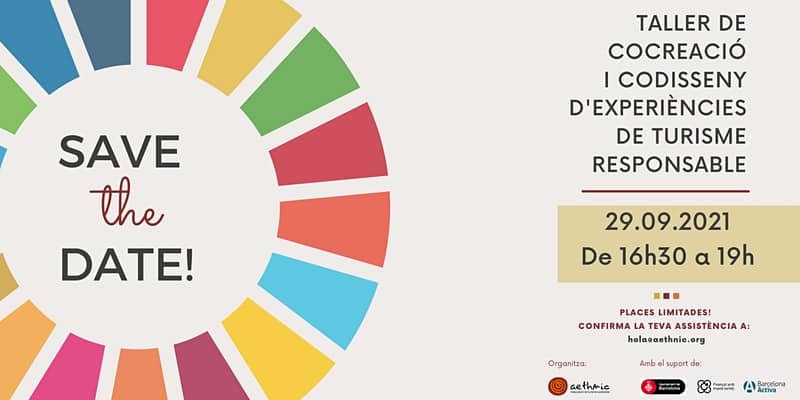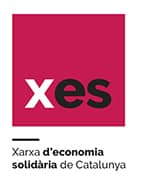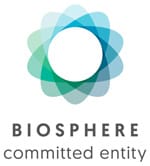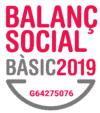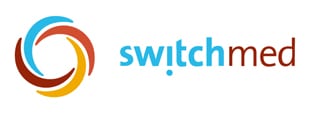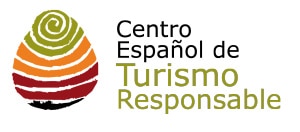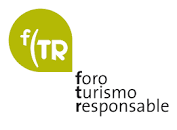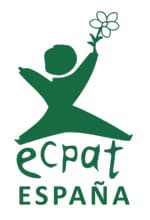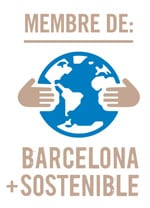Last Wednesday, September 29, the Ethnic Association held the Co-creation and Co-design of Responsible Tourism Experiences Workshop , a session in digital format that aimed to offer practical tools and resources to co-create tourist experiences based on criteria of responsibility and sustainability.
The course was framed in the local initiatives that Aethnic has been developing since the beginning of the year; on the one hand, the project Poblenou Responsible Tourism , which values the cultural, artistic and commercial activities of the district , and on the other the project TurismESS , which promotes the articulation of a new tourist offer based on initiatives of the Social and Solidarity Economy of Barcelona.
In this context, the workshop convened more than a dozen local entities that were interested in being part of the change promoted by Aethnic: Advance towards a new model of tourist activities and experiences that is alternative to the current one and that is committed to the Sustainable Development Goals of the UN.
Far from being a master class, the training session took a dynamic and participative approach in order to promote the collaboration and involvement of the attendees. Along these lines, the workshop instructors stated:
“Barcelona needs to develop proximity experiences that are attractive to tourists and that generate positive impacts on the destination as a whole. This purpose, however ambitious it may seem, will only be achievable if we listen to the proposals of our local agents and follow the principles of community development .
As for the content of the session , it was developed based on a proprietary methodology that described the process of co-creation and co-design in 5 simple steps :
- STEP 1 – Researching the content: “What resources can I highlight?”
- STEP 2 – Screening options: “Which resource should I choose?”
- STEP 3 – The design of the experience: “Who am I addressing?”; “Where can I develop the experience?”; “How do I define the activity flow?”
- STEP 4 – The creation of the narrative: “How do I use the Storytelling technique?”.
- STEP 5 – The experience sheet: “How do I present the experience to my audience?”
Each section defined a set of specific objectives and specified key tools to achieve them. However, all these resources were complemented by two interesting dossiers that Aethnic prepared for each of the participants, one with the details of the methodology and the other with specific instructions and templates to fill out.
Otherwise, those responsible for the session took the opportunity to introduce a series of “key concepts” , such as the regenerative development of tourism or creative tourism :
” It is not enough to co-create sustainable experiences . We have to go a step further and opt for a regenerative tourism model that connects visitors with the natural rhythm of the destination and that allows to generate meaningful and lasting tourist experiences. To achieve this you need understand creativity as a key resource to encourage the interaction between tourists and local residents“.
During the course of the workshop, the collaborating entities were able to learn about reference cases from different places in the world, from indigenous communities in Latin America to first-class tourist destinations, such as Spain, Portugal or Italy. What was intended with these examples was to present the great diversity of initiatives that can be generated from indigenous resources and demonstrate, once again, that the success of new tourist experiences does not have to depend on the availability of resources material tourism
“Less significant experiences , or meaningful experiences in English, are those that they allow the tourist to connect with himself, with others and with everything that surrounds him. It is about experiences that they activate deep relationships and promote transformations in the visitor’s way of thinking and acting […] The creative management of intangible resources can result in experiences of this type, where tourists go from consuming experiences to living experiences .
Once the course has ended, the members of Aethnic have distributed a short satisfaction survey to evaluate the performance of the workshop and get to know, up close, the opinions of the attendees. 100% of the responses reveal that the participants were satisfied with the development of the session and the vast majority rated the materials delivered and the examples provided very positively . On the other hand, the attendees rated the format of the session, which was online , less positively , and highlighted the difficulties in interacting and actively participating in the proposed exercises.
Overall, the organizers of the workshop are happy and hopeful with the results and point out the urgent need to “generate spaces for cooperation and networking so that entities interested in participating in tourism can work together and develop their own discourse within the sector”.
Did you miss it? No problem, enjoy it deferred!

